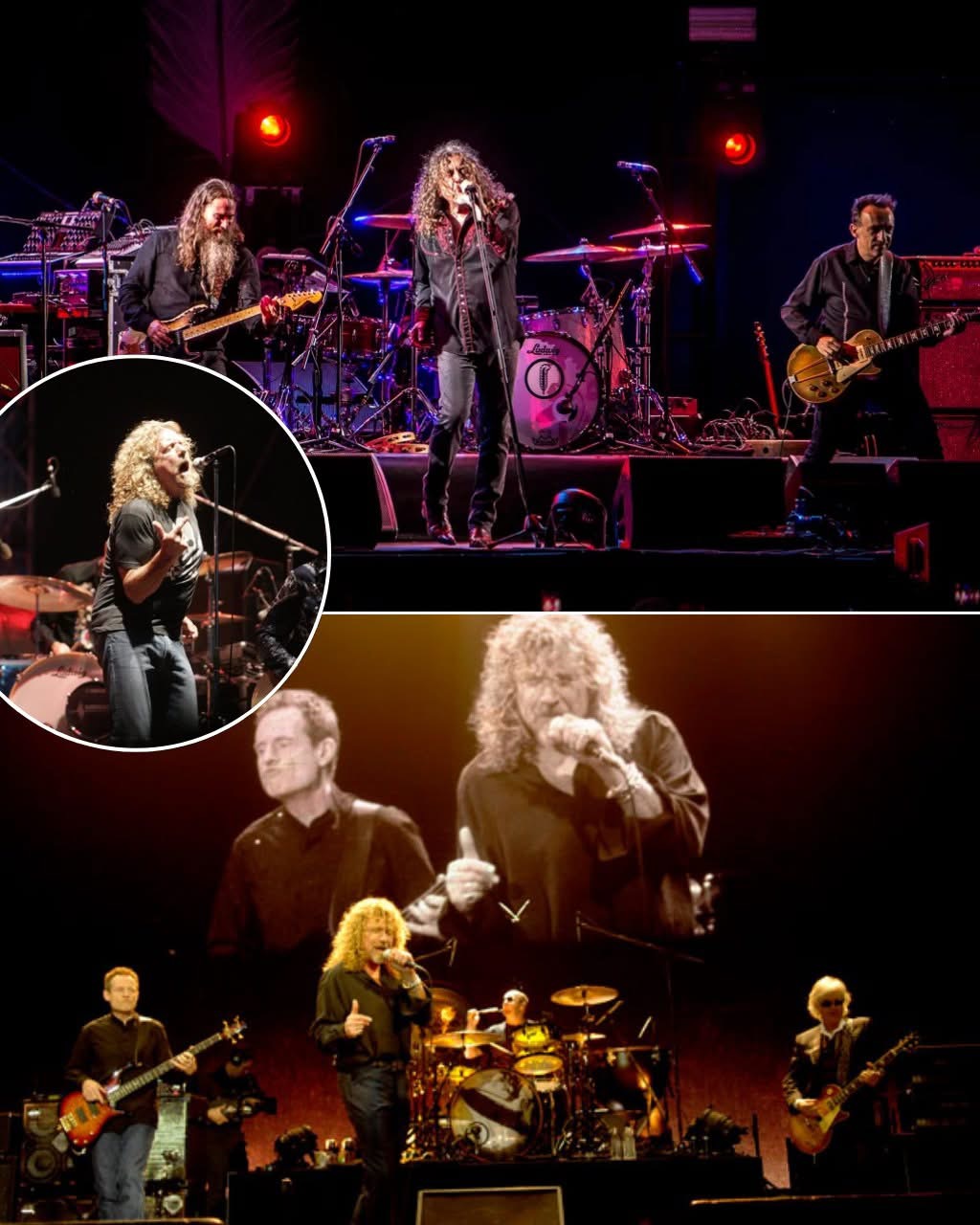In a moment that felt more like folklore than reality, Robert Plant stepped onto the intimate stage of a packed New Orleans jazz club and turned Led Zeppelin’s “Black Dog” into something utterly transformed. It was the kind of night that could only happen at Midnight Preserves, the Jazz Fest’s secret-weapon series where legends collide with local icons in after-hours alchemy. Backed by the soul-drenched Preservation Hall Jazz Band, Plant didn’t just revisit a classic—he reimagined it.
Gone was the pounding stomp of the original. In its place: a slow-burning, jazz-infused interpretation soaked in brass, blues, and brooding atmosphere. Plant’s iconic wail melted into a smoky croon, twisting through the haze of trombones and clarinets with a swagger that felt both ancient and electrifyingly new. The song’s familiar “Hey, hey mama” refrain now slithered like molasses over a moody, syncopated rhythm section. It was “Black Dog” dragged through the bayou at midnight—haunting, hypnotic, and dripping with Southern gothic soul.
Audience members clutched their drinks and held their breath as Plant prowled the stage, fully immersed, fully alive. One fan, clearly dazed by what they’d just witnessed, described it as “swampy, moody & downright delicious.” It was the kind of performance that didn’t just reinterpret a song—it reshaped what music can be when genres are torn down and rebuilt in the dark.
In a city where music never sleeps and the unexpected is tradition, Robert Plant’s surprise appearance wasn’t just a festival highlight—it was a moment of musical reinvention. Proof that when rock royalty meets New Orleans jazz royalty, the result isn’t just collaboration. It’s history, made in real time.









